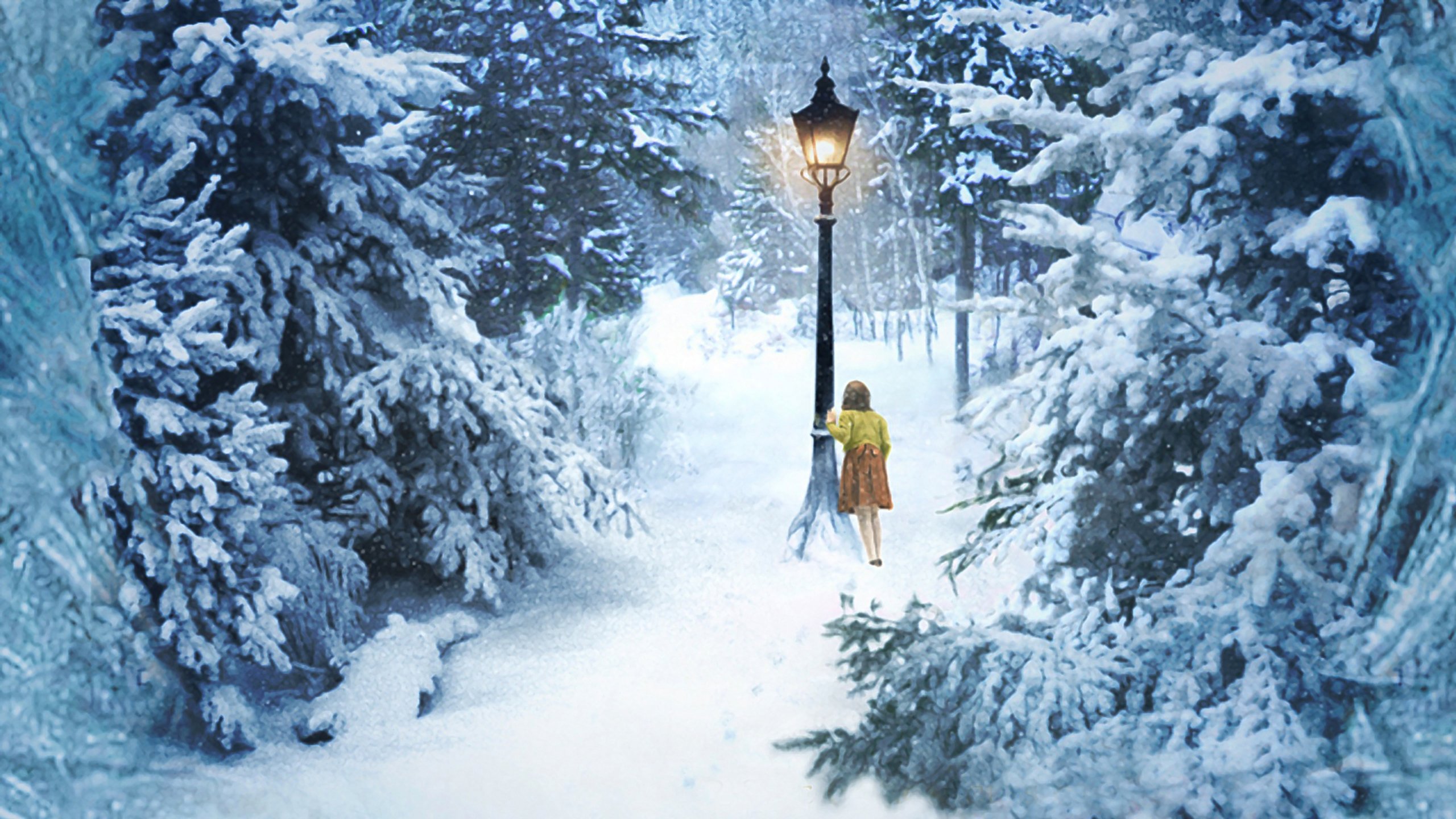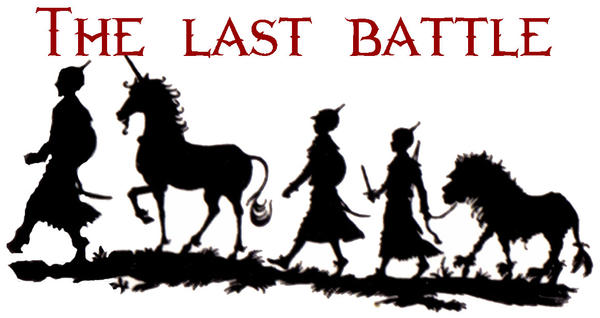As regular readers know, I read the Epoch Times and love it! My favorite section is Life and Culture. This week Marlena Figge has a wonderful article on the C.S. Lewis' series, the Chronicles of Narnia focusing on the final book, The Last Battle. Some readers may be a little confused because she discusses the books, not according to their publication order, but their chronological order. Like the Star Wars series, Lewis began in the middle with The Lion, the Witch, and the Wardrobe, when the four children of the Pevensie family were evacuated from London and went to live with a professor in the country. One rainy day playing hide and seek, the youngest, Lucy, hides in an old wardrobe, an entrance into the wintry world of Narnia where she meets Tumnus, the faun, and begins an incredible adventure with her siblings.
The series is not an allegory although it's filled with symbolism. Lewis himself made that clear in his writing. But it is certainly a moral tale, more like a classic fairy tale with definite moral implications and many teaching moments.
What struck me about Figge's article was the discussion of evil based on the final book in the series, The Last Battle. She quotes from a letter of Lewis to a friend:
The truth is that evil is not a real thing at all, like God. It is simply good spoiled. That is why I say there can be good without evil, but no evil without good. You know what the biologists mean by a parasite -- an animal that lives on another animal. Evil is a parasite. It is there only because good is there for it to spoil and confuse.
I could digress here into a discussion about our own challenges in the Church these days, but that is, perhaps a post for another day. One can think of Pope Francis and many of his Vatican appointments as "spoilers," parasites on Holy Mother Church. I will think about that for awhile and see whether it germinates. We certainly face much evil today in our beloved Church so much like the long winter imposed on Narnia by the white witch.
Figge goes on to say this about evil in Lewis' final novel in the series:
This is one of the prominent themes of The Last Battle. Evil has no proper substance; it cannot create, only destroy or distort. At the opening of the book, Shift, the ape, alters a lion's skin and persuades Puzzle, the donkey, to wear it and impersonate Aslan. The easily controlled Puzzle follows Shift's orders and leads many Narnians astray. Those who believe the ape's ruse carry out his commands and are essentially forced into servitude.
All the while, the faithful followers of Aslan ask how this evil can be possible. How is it that Aslan would not only allow but also orchestrate all this suffering?
The situation is further muddied when the Calormenes, who worship a demon named Tash, tell the Narnians that Tash and Aslan are the same person under different names and refer to this hybrid as "Tashlan." We are, ourselves, in the middle of such a situation where good and evil are presented as equal. How does one respond in such an upside down universe?
I won't spoil the story for those who haven't read it. But it focuses on a stable where where all the Narnians gather each evening. Using the dim light to hide his trick, Shift brings out Puzzle and acts the tyrant pretending to interpret "Aslan's" orders. The stable become a fearsome place to the Narnians. But ultimately, it is through that stable that the final chapter of the story unfolds and evil is defeated.The Narnia stories may have been written with children in mind, but they are anything but childish. They incorporate many truths about good and evil, virtue and vice that offer much food for thought and serious meditation. If you've never read them, why not read them now and share them with your children and grandchildren. Hearing stories read out loud is one of the memorable joys of my childhood. Shut off the devices and enter the wonderful world of Narnia.



No comments:
Post a Comment